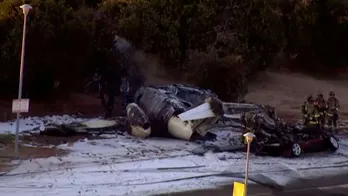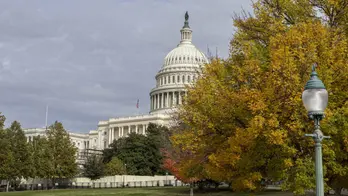Hollywood writers reach a tentative deal with studios, agree to end strike
Screenwriters and studios have reached a tentative deal, ending one of the strikes that have ground Hollywood to a halt.
It's been nearly five months since the Writers Guild of America began its strike against the major studios represented by the Alliance of Motion Picture and Television Producers. The two sides met up only once during the summer, but it reportedly didn't go well — with writers accusing studio heads of lecturing them.
Last week, bargaining sessions were attended by Disney CEO Bob Iger, Warner Bros. Discovery CEO David Zaslav, Netflix CEO Ted Sarandos and Universal Pictures chief content officer Donna Langley. It was a highly unusual move, signaling studios' eagerness to return to work; the stoppage has already caused them to delay premieres of many films and series.
The two sides had been at an impasse, with screenwriters demanding higher pay and more residuals when their work is re-run on streaming services. They also asked for a residual formula based on the number of views a show gets on the streamers.
But executives pushed back, worrying publicly about their profits and pointing out that they have laid off employees over the last few years. Streamers like Netflix and Amazon have also been reluctant to release data on their viewership.
Writers had asked for guaranteed staffing levels for television series, complaining about the new streaming model. In particular, they worried about the use of "mini rooms," in which individual writers are hired to submit their work remotely, on spec, with no guarantees. The WGA argued that the elimination of "writer's rooms" on TV series harms the continuity required for consistent storylines and characters and deprives newer writers of learning to be "showrunners" who oversee production.
In its last counter proposal, the AMPTP offered showrunners the ability to hire at least two writers for each show, but details of the newest agreement still need to be made public.
The studios have also reportedly agreed to some demands to protect writer's work from using artificial intelligence in the writing process. In an earlier counteroffer, the AMPTP proposed bans on written material produced by generative AI software, saying it wouldn't be considered "literary material" or "source material."
Actors in the union SAG-AFTRA have been waiting for the AMPTP to come back to them to negotiate their new deal. The actor's strike has been going on since July.
Disclaimer: The copyright of this article belongs to the original author. Reposting this article is solely for the purpose of information dissemination and does not constitute any investment advice. If there is any infringement, please contact us immediately. We will make corrections or deletions as necessary. Thank you.







